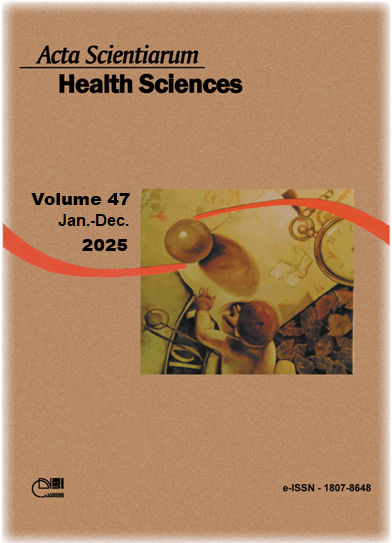Sleep quality amongst medical students
Resumo
Sleep is a physiological-rhythmic state characterized by the loss of consciousness and responsiveness, during which crucial processes for learning and metabolism occur. Therefore, maintaining adequate sleep quality is essential. The objective of this study was to describe the sleep quality of medical students in Paraguay during the first semester of 2024. A descriptive cross-sectional study was conducted on medical students in Paraguay. Data were collected using the Pittsburgh Sleep Quality Index (PSQI) and analyzed with IBM SPSS Statistics v.23 software. A total of 466 students participated, with an average age of 21.30 years (SD ± 3.08); and 58.8% were male. The majority resided in Asunción (54.7%). 51.1% reported poor subjective sleep quality, primarily first-year students (59.5%). Sleep latency difficulties were noted by 33.9% weekly, while 42.1% slept 5-6 hours, and 27% less than 5 hours. Sleep efficiency exceeded 85% for 59.9%, and 48.9% experienced monthly sleep disturbances. Only 25% used sleep medication, which positively affected sleep quality (p = 0.02). Daytime dysfunction affected 35.8%, mainly among sixth-year students. Overall, 64.4% had moderate sleep quality, 27.5% had poor sleep quality, and only 8.2% reported good sleep quality. Medical students in Paraguay presented moderate to poor sleep quality, with first-year students being the most affected.
Downloads
Copyright (c) 2025 Acta Scientiarum. Health Sciences

This work is licensed under a Creative Commons Attribution 4.0 International License.
DECLARAÇÃO DE ORIGINALIDADE E DIREITOS AUTORAIS
Declaro que o presente artigo é original, não tendo sido submetido à publicação em qualquer outro periódico nacional ou internacional, quer seja em parte ou em sua totalidade.
Os direitos autorais pertencem exclusivamente aos autores. Os direitos de licenciamento utilizados pelo periódico é a licença Creative Commons Attribution 4.0 (CC BY 4.0): são permitidos o acompartilhamento (cópia e distribuição do material em qualqer meio ou formato) e adaptação (remix, transformação e criação de material a partir do conteúdo assim licenciado para quaisquer fins, inclusive comerciais.
Recomenda-se a leitura desse link para maiores informações sobre o tema: fornecimento de créditos e referências de forma correta, entre outros detalhes cruciais para uso adequado do material licenciado.
























5.png)







